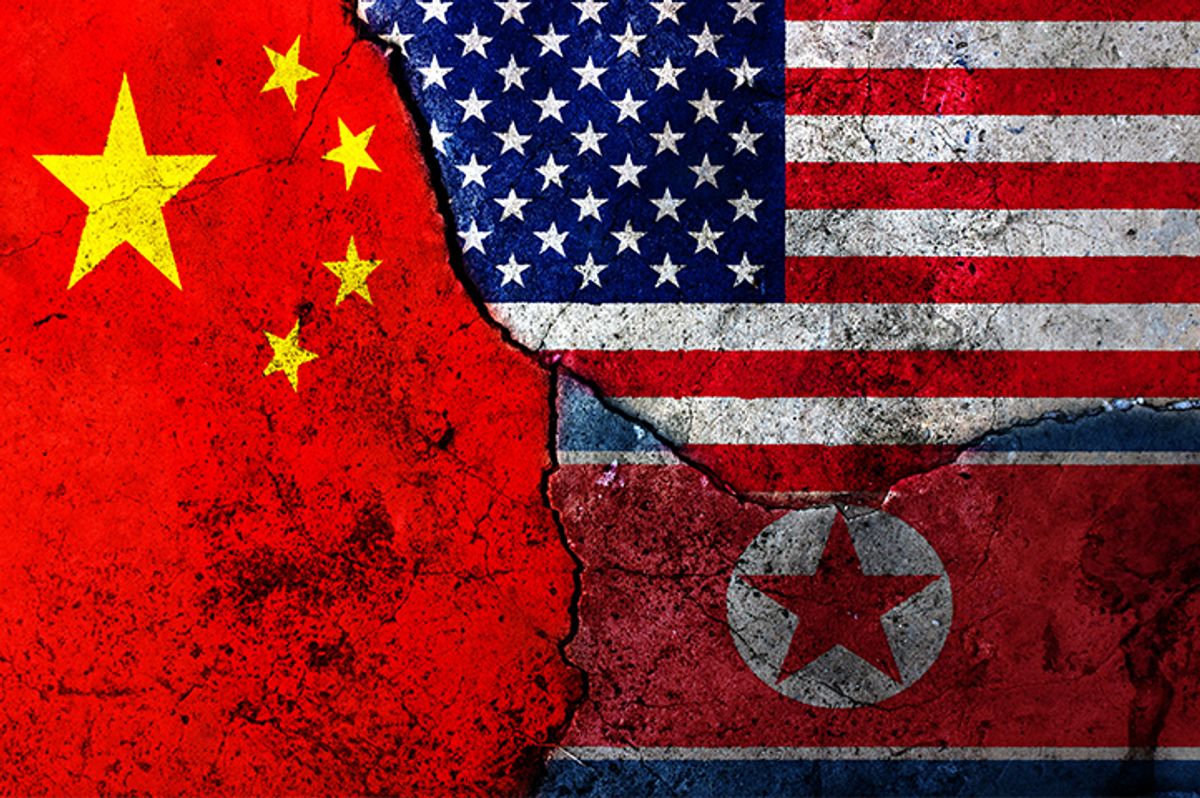North Korea's nuclear threat and the international crisis it has provoked have temporarily receded into the background, largely thanks to the permanent cloud of scandal enshrouding President Trump's administration. But the North Korean enigma is likely to remain the most significant foreign policy challenge of Donald Trump's presidency, and no doubt of the next president's too.
Foreign policy expert and Daily Beast columnist Gordon G. Chang published a book called "Nuclear Showdown: North Korea Takes on the World" -- more than 10 years ago. He recently stopped by Salon's New York studio to talk with me and Carrie Sheffield about the multiple layers of ambiguity in the three-way relationship between China, North Korea and the United States. Despite the latent intimations of doom, Chang still believes that diplomacy and patience will ultimately resolve this crisis and contain the nuclear threat.
Very few Americans understand the complex nature of the relationship between China and North Korea. You understand both countries well. Can you explain that a little?
I think we all fail to understand the complex nature of that relationship, and it goes back decades. Mao Zedong, founder of the People's Republic of China, bailed out Kim Il-sung, founder of the Democratic People's Republic of Korea, during the Korean War, when Gen. Douglas MacArthur had basically pushed the North Koreans all the way to the Chinese border.
But North Koreans today are not grateful. There has been for centuries, maybe for millennia, this hatred between Chinese and Koreans. So North Koreans direct their propaganda rhetoric at us, but when they talk about the Chinese there is much more vitriol, and it's historical.
So it's a marriage with a bad history -- but still a marriage, right? North Korea is entirely dependent on China for its survival.
Yes, he Kim regime knows it is reliant on the Chinese. China accounts for more than 90 percent of North Korea's trade, more than 90 percent of North Korea's oil -- much of it provided on concessionary terms -- and 35 percent, maybe as much as 45 percent, of North Korea's food.
That gives the Chinese an enormous amount of leverage, when they want to use it. There is a lot of friction between Beijing and Pyongyang right now, but we shouldn't be confused by that. When the Chinese really pull the strings, the North Korean regime knows it has to comply.
Is North Korea a problem for China in terms of the latter's relationship with the United States, or a strategic asset? Or perhaps both?
Honestly, the Kim regime has gotten a little beyond what the Chinese would like them to do. In the long term, North Korea may be driving other nations in Asia away from China and toward the United States. But in the short term, North Korea creates a favorable dynamic for Beijing. Because every time North Korea does something provocative, we send our secretary of state or a high American envoy to Beijing, we plead for their cooperation, the Chinese get concessions from us, and we stop talking about other things that are important to us.
We stop talking about cyber-attacks, predatory trade practices or human rights. All those things go quiet. Right now, you have Liu Xiaobo, the 2010 Nobel Peace Prize laureate, who is dying. [Liu has since died.] This is basically state murder and you don't hear anything from Washington about it. This is Beijing's North Korea policy at work.



Shares